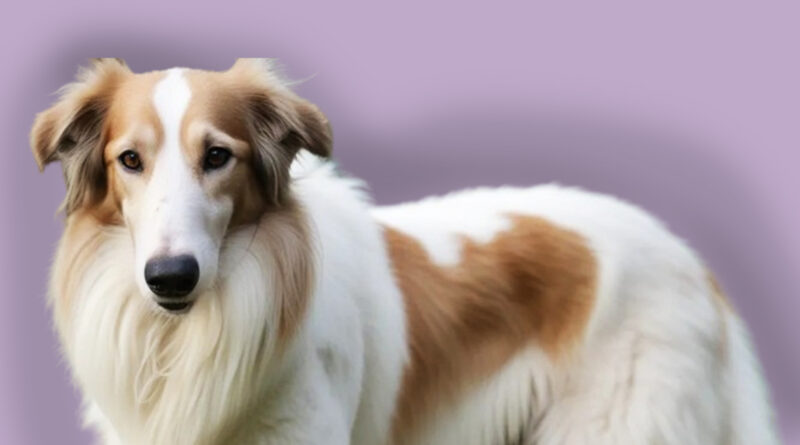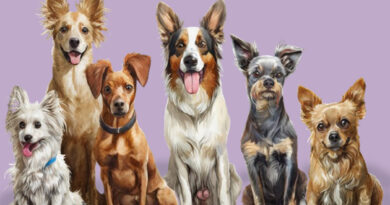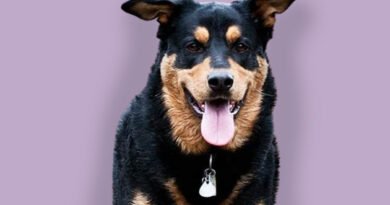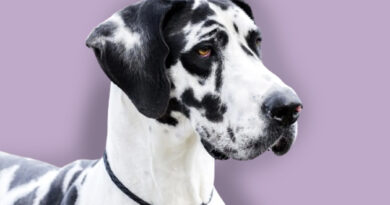Exploring Borzoi Dog Breed Information (2024)
The Borzoi dog breed, frequently known as the Russian Wolfhound, is recognized for its beautiful beauty, kind disposition, and rich history. Originating in Russia, Borzoi were bred for hunting wolves and other game, although they have evolved into cherished companions noted for their elegance and loyalty. In order to give Borzoi puppies the attention, education, and company they require to flourish, it is crucial to comprehend pet ownership in general.
This study intends to investigate a number of facets of caring for and training Borzoi puppies, such as food demands, activity requirements, socialization, and health considerations. By exploring these subjects, dog owners can acquire important knowledge about the special traits and requirements of Borzoi puppies, which will help them to build solid relationships and look out for the welfare of their furry friends.
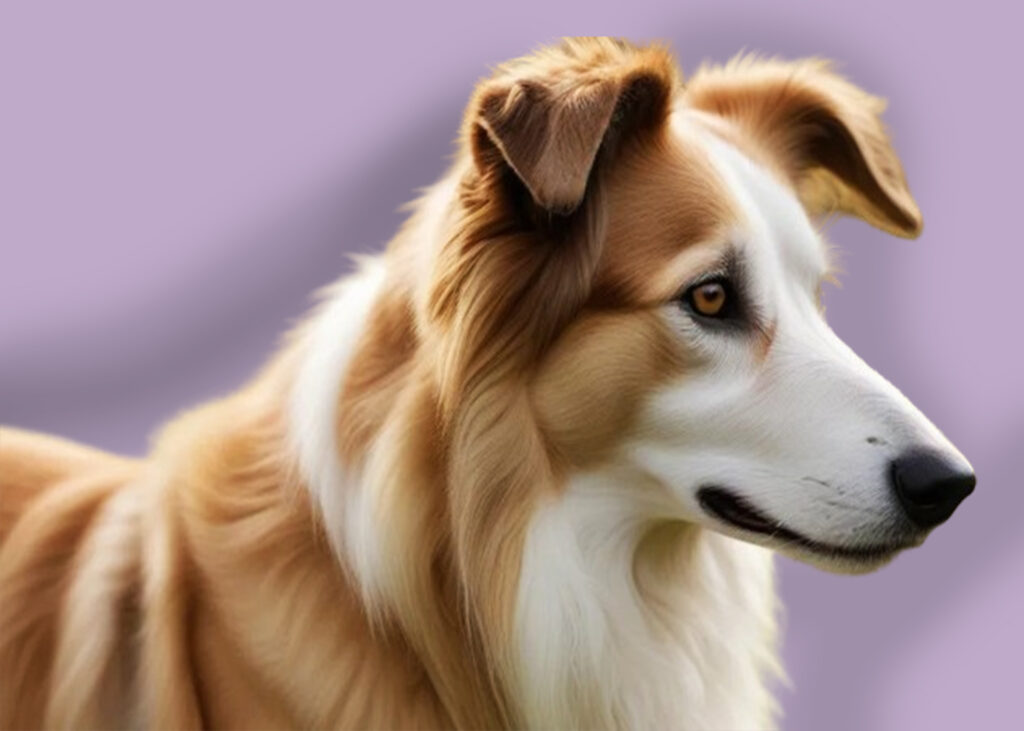
Historical Background of the Borzoi Dog Breed
With its magnificent beauty and noble temperament, the Borzoi dog breed has its roots in Russia, where it was highly valued as an aristocratic and hunting companion.
The history of the Borzoi dog breed
The specific roots of the Borzoi dog breed are shrouded in antiquity, with historical documents stretching back several centuries. It is thought that the Borzoi’s progenitors were introduced to Russia from Central Asian regions, probably by nomadic tribes, where they were selectively bred by Russian nobility for hunting reasons.
The Development of Borzoi as Hunting and Pet Dogs:
The main purpose of borzois’ breeding was to chase wildlife, such as wolves, foxes, and hares, over the huge stretches of Russian countryside. Their exceptional quickness, dexterity, and acute vision made them ideal for long-distance hunting of evasive prey. Borzois would hunt in packs with other hunting dogs, pursuing their prey with amazing grace and accuracy.
Russian nobility loved Borzoi dog breed as companions and status symbols, in addition to their use as hunters. They were frequently portrayed as icons of grace, elegance, and refinement in literary works, artistic creations, and folklore, which reflected the great regard that society held for them.
Famous People in History Associated with the Borzoi:
Borzoi dog breed have drawn the interest of famous people throughout history, which has increased their value as valuable items. Russia’s Tsar Nicholas II was a well-known fan of Borzois and had a sizable kennel of these canines at his palace. He contributed to the promotion of the breed both in Russia and elsewhere by often competing in coursing tournaments for Borzoi dogs.
Similar to this, European royalty and aristocracy began to embrace Borzoi dog breed in the late 19th and early 20th centuries. Notable individuals who shared this admiration included Grand Duke Nicholas Nikolaevich of Russia and Queen Victoria of England. Their support contributed to the Borzoi’s standing as a distinguished and refined breed.
Physical Characteristics and Temperament of Borzoi Puppies
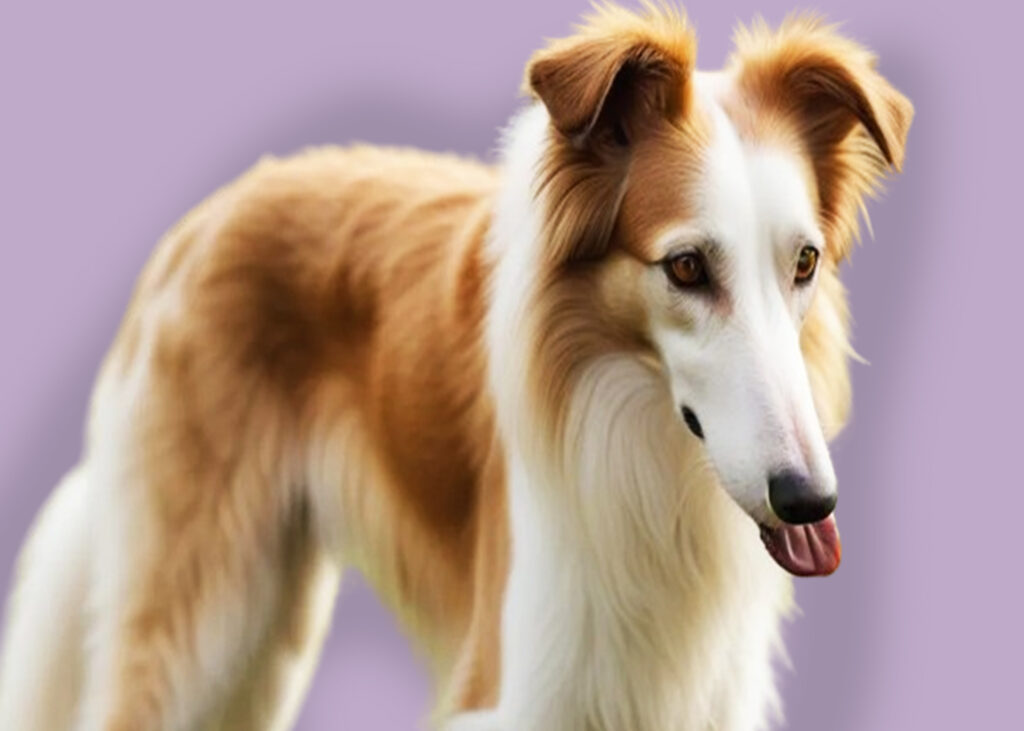
Borzoi puppies stand out among other canine companions due to their remarkable appearance and distinct temperament, which, from an early age, embodies elegance and grace.
Characteristics of the Borzoi Puppy’s Look:
Puppies of the Borzoi dog breed have a unique appearance because of their long, lean bodies, elegant movements, and plush coats. With their long, tapering muzzles and expressive, almond-shaped eyes that exude intelligence and sensitivity, their heads are noble and sophisticated. Their narrow, folded ears contribute to their royal appearance. Puppies of the Borzoi breed can be white, cream, tan, or any shade of gray. Their coats frequently have characteristic patterns or markings.
Characteristics and Atmosphere Unique to Borzoi Puppies:
Puppies of the Borzoi dog breed are renowned for their kind and loving disposition, creating close relationships with their family, and having a composed and peaceful manner. Even though they come from a noble line of hunters, Borzois are often quiet, reticent, and observe their surroundings with quiet dignity. They are great companions for homes looking for a gentle and dedicated pet because they are fiercely loyal to their loved ones, despite their potential for being aloof with strangers.
Borzoi puppies have a gentle disposition as well as an active and curious nature. They love interactive play sessions and enthusiastically explore their surroundings. Despite having a natural prey drive, they get along well with other pets, especially if they are socialized well from an early age.
Comparison with Other Breeds:
Puppies of the Borzoi dog breed are distinguished from other breeds by their special blend of gentle temperament, grace, and elegance. Although they have certain characteristics in common with other sighthounds, like the Greyhound and Saluki, Borzois stand out due to their longer coat, heavier frame, and unique head shape. They also stand apart due to their disposition; unlike some other breeds that are recognized for being gregarious and extroverted, they have a tendency to be more independent and quiet.
In spite of their differences, families looking for a devoted, respectable pet that radiates style and elegance may find great companionship in Borzoi puppies.
Care and Training of Borzoi Puppies
Borzoi puppies, with their distinctive physical qualities and gentle demeanor, require particular care and excellent training methods to ensure their well-being and development. This section offers thorough advice for pet owners by examining the nutritional demands, exercise requirements, fundamental training techniques, and health issues of Borzoi dog breed.
The Dietary Needs of Borzoi Puppies:
Like all growing dogs, borzoi puppies need a balanced diet to support their quick development. Choose a high-quality puppy food specifically formulated for large breeds, ensuring it contains essential nutrients such as protein, carbohydrates, fats, vitamins, and minerals. Give your Borzoi dog breed several small meals during the day to avoid bloating, which is a condition that deep-chested breeds are more likely to experience. To keep their bodies in a healthy state, keep an eye on their weight and modify portion sizes accordingly.
Exercise Requirements and Suggested Physical Activity:
Although they have a graceful and elegant appearance, Borzoi puppies are lively and energetic canines who need frequent exercise to stay happy and healthy. Try to get in between thirty and sixty minutes a day of moderate exercise, including fast walks, jogging, or off-leash play in a safe place. Due to their innate desire to chase, borzois should have opportunities to run and exercise in a secure, contained area. Avoid strenuous exercise, such as jumping or high-impact activities, until their growth plates have fully closed to prevent injuries.
Basic Training Methods for Borzoi Puppies:
Training Borzoi puppies requires patience, consistency, and positive reinforcement techniques. Start with basic obedience instructions such as sit, stay, come, and down, using prizes such as food, praise, and affection to reinforce desired actions. When training Borzoi puppies, remember that they may be sensitive to harsh corrections. Instead, use firm but gentle guidance. To keep children interested and motivated, make training sessions brief and entertaining, and include play and bonding exercises. Gradually increase the level of difficulty as they master each command, and always end on a positive note.
Health Concerns and Preventive Measures:
While Borzoi puppies are typically healthy dogs, they are prone to some inherited health issues that parents should be aware of. These may include hip dysplasia, elbow dysplasia, bloat (gastric torsion), heart problems, and eye abnormalities such as progressive retinal atrophy (PRA). Make sure the breeders of Borzoi puppies are reliable, and test their breeding stock for health problems in order to reduce the likelihood of these health problems. Make time for your puppy’s routine veterinary examinations so you can keep an eye on their health and take quick care of any issues. Maintain a healthy weight, provide regular exercise, and feed a balanced diet to support overall well-being.
Caring for and training Borzoi puppies involves devotion, patience, and attention to detail. A decent diet, consistent exercise, good training, and preventive medical care can help parents raise healthy, well-mannered adult Borzoi dog breed. Always remember to adjust your puppy’s care and training regimen to his or her unique needs and personality, and relish the experience of developing a close bond and friendship with your cherished Borzoi companion.
Borzoi Puppies’ Socialization and Behavioral Development
Puppies’ behavior and temperament are greatly influenced by socialization, which lays the groundwork for an adult dog who is confident and well-adjusted. In this section, we’ll cover the necessity of socialization during the puppy stage, tactics for socializing Borzoi puppies with humans and other animals, and significant behavioral milestones in their development.
Importance of Socialization During the Puppy Stage:
Socialization during the puppy stage is vital for Borzoi puppies to develop into well-rounded and confident adults. It exposes kids to a range of people, animals, locations, and experiences, helping them learn to adapt and engage successfully with the world around them. Additionally, early socialization lowers the risk of behavioral issues, including fear, anger, and anxiety, in later life.
Techniques for Mannering Borzoi Puppies Around People and Other Animals:
- Positive Exposure: Introduce Borzoi puppies to different people of all ages, including youngsters, adults, and elders. Create good associations with human contact by praising and rewarding gentle interactions and giving out lots of treats.
- Animal Interactions: Set up supervised playdates with dogs of different sizes, temperaments, and breeds. Supervise interactions closely to guarantee safety and prevent any bad encounters. Additionally, in a supervised setting, introduce Borzoi puppies to other creatures, including cats, small mammals, and livestock.
- Environmental Exploration: Take Borzoi puppies on outings to different places, such as parks, beaches, pet stores, and busy streets. As they grow more at ease, progressively increase the level of stimulation by exposing them to a variety of sights, sounds, and smells.
- Training lessons: Enroll your Borzoi puppies in lessons for basic obedience or puppy kindergarten so they may socialize with other pups and learn important manners in a structured environment. These programs also provide opportunities for supervised play and socialization with other dogs.
Behavioral Milestones in Borzoi Puppy Development:
- Neonatal Period (0–2 weeks): Borzoi puppies use their senses of touch and scent to navigate their environment because they are born blind and deaf. They bond with their mother and littermates at this stage, spending the majority of their time napping and nursing.
- Transitional Period (2-4 weeks): Borzoi puppies’ eyes and ears begin to open, allowing them to explore their environment more fully. They begin to explore by walking and playing, and their social contacts with their littermates intensify as they grow more active.
- Socialization period (4-12 weeks): The socialization period is crucial for the socialization of Borzoi puppies, as this is when they are most open to new experiences and knowledge. They create relationships with people and other animals, gain biting restraint, and acquire critical social abilities.
- Juvenile era (3-6 months): Borzoi puppies reach the juvenile era, characterized by increased independence and exploration. They might push boundaries and engage in activities like jumping, digging, and chewing. Consistent training and reinforcement of desired actions are crucial throughout this stage.
Socialization is a vital aspect of Borzoi puppy development, influencing their behavior and temperament throughout their lives. By employing effective socialization tactics and recognizing important behavioral stages, owners may help their Borzoi puppies grow into well-adjusted, confident, and sociable adult dogs. Take pleasure in witnessing your Borzoi puppy flourish as they learn to navigate their environment by keeping in mind to be patient, persistent, and supportive throughout the socialization process.
Borzoi Puppies in Contemporary Society
Borzoi puppies hold a special place in contemporary society, serving as cherished companions, esteemed competitors in dog shows, and cultural icons portrayed in various forms of media.
Role of Borzoi Puppies as Companion Animals:
In modern culture, Borzoi puppies continue to fulfill their original role as devoted and affectionate companions to their owners. With their gentle disposition and elegant look, Borzois are ideal pets for individuals and families wanting a calm and dedicated canine companion. They build close relationships with their families and thrive on human company, offering solace, company, and steadfast loyalty.
Taking Part in Dog Competitions and Shows:
Borzoi puppies regularly demonstrate their beauty and grace in dog shows and contests across the world. Their regal appearance, flowing coats, and graceful movements make them popular contenders in conformation events, where they are judged against breed standards for appearance and structure. Borzois can also show off their athleticism and intellect by competing in performance events like agility, obedience trials, and lure coursing.
Cultural Significance and Portrayal in Media:
As emblems of grace, refinement, and nobility in literature, art, and film, borzoi puppies have had a lasting effect on popular culture. Famous writers like Leo Tolstoy and Anton Chekhov have immortalized them in their works, portraying Borzois as respected aristocratic companions in their literary masterpieces. Prominent artists have depicted Borzois in paintings and sculptures, showcasing their elegance and beauty for future generations to appreciate.
Furthermore, Borzois has made appearances in various forms of media, including film, television, and advertising. Their remarkable look and unique presence have been highlighted in advertisements, TV series, and films, adding to their cultural relevance and appeal to dog lovers.
Ethical Considerations in Borzoi Puppy Ownership
Owning a Borzoi puppy comes with ethical responsibilities that extend beyond mere companionship. To protect the welfare of these amazing dogs, we’ll dispel common myths about Borzoi puppies in this area, discuss the significance of appropriate breeding procedures, and support adoption and rescue programs.
Responsible Breeding Practices:
Responsible breeding is paramount to maintaining the health and integrity of the Borzoi breed. Ethical breeders prioritize the health, temperament, and welfare of their dogs over profit, adhering to breed standards and conducting health screenings to minimize the risk of hereditary diseases. For parent dogs and puppies, they offer loving environments, veterinary care, and appropriate socialization to ensure that they are well-adjusted and ready for life as companions.
By supporting responsible breeders who prioritize the long-term health and well-being of Borzoi puppies, prospective owners can contribute to the preservation of the breed’s integrity and ensure that future generations of Borzois continue to bring joy and companionship to countless families.
Addressing Common Misconceptions about Borzoi Puppies:
Borzoi puppies are commonly misunderstood because of misunderstandings about their size, temperament, and exercise needs. Despite what the public may think, Borzoi dog breed are kind and gentle dogs that do well in loving homes when given the right care and attention. Despite their aristocratic appearance, Borzois are devoted and loyal friends who build close relationships with their families.
Additionally, some people may mistakenly assume that Borzoi dog breed require excessive exercise due to their sighthound heritage. Borzois are generally content with moderate exercise and thrive in environments where they can unwind and enjoy the company of their loved ones, though they do enjoy regular opportunities to run and stretch their legs.
Advocacy for Adoption and Rescue Initiatives:
Despite the efforts of ethical breeders, many Borzoi dog breed end up in shelters or rescue organizations owing to changes in their owners’ circumstances or reckless breeding methods. Adoption and rescue initiatives play a crucial role in providing second chances for Borzoi puppies in need of loving homes.
By adopting from shelters or rescues, individuals not only give a forever home to a deserving Borzoi dog breed but also help reduce the strain on overcrowded shelters and promote ethical pet ownership. Aside from that, adopting a puppy from a rescue group enables potential owners to give a needy dog a loving home and experience the joy of adding a new family member to their lives.
Conclusion
In conclusion, our exploration of Borzoi dog breed has provided valuable insights into their care, training, socialization, and ethical considerations. We have identified the necessity of providing a balanced diet, frequent exercise, and correct training to ensure the well-being of Borzoi puppies. Socialization emerged as a critical factor in shaping their behavior and temperament, emphasizing the need for early exposure to diverse experiences and environments.
In order to address the welfare of Borzoi dog breed, our debate also emphasized the importance of appropriate breeding techniques and the promotion of adoption and rescue activities. By supporting ethical breeding, debunking myths, and campaigning for adoption, we can contribute to the preservation of this lovely breed while promoting responsible pet ownership.

